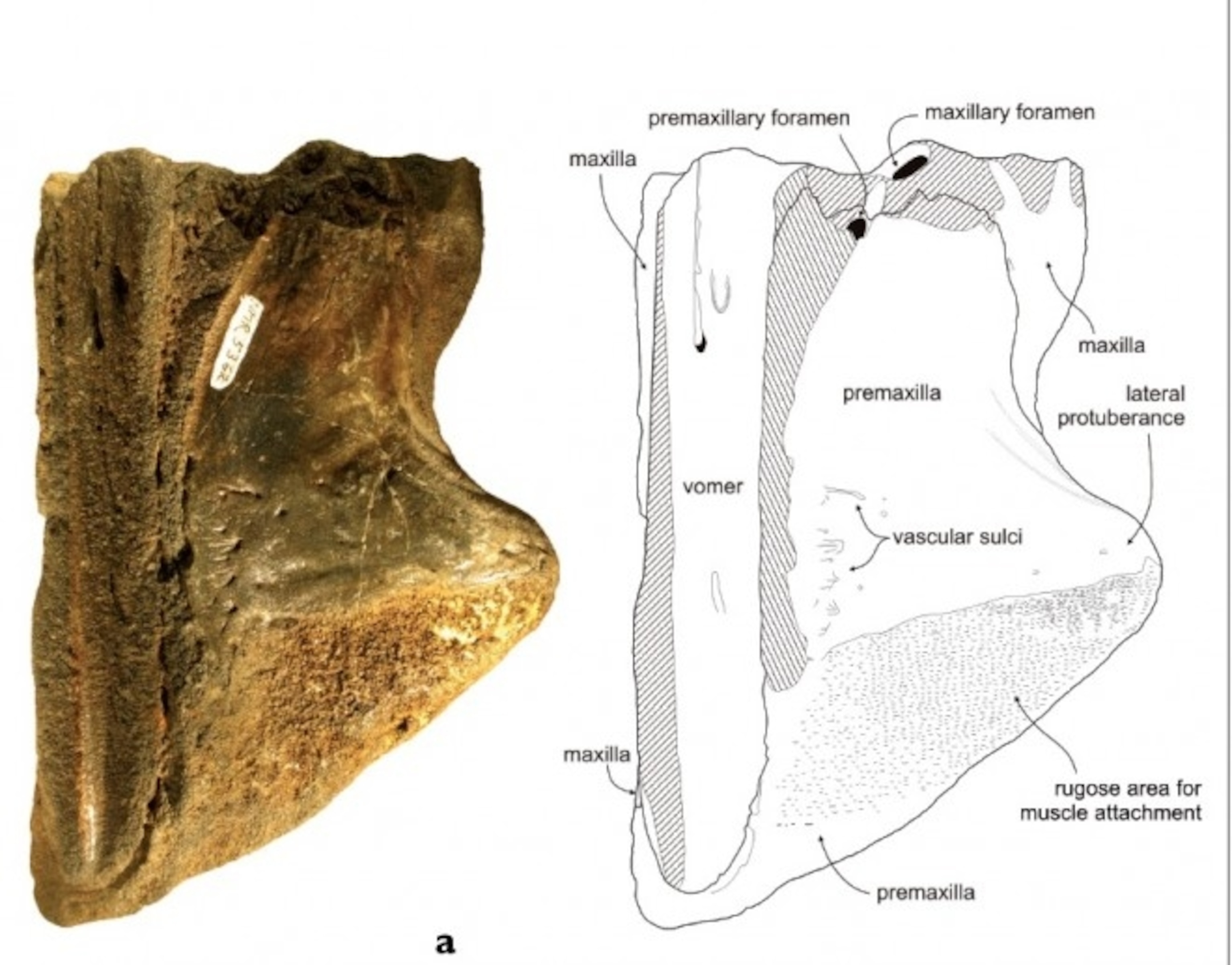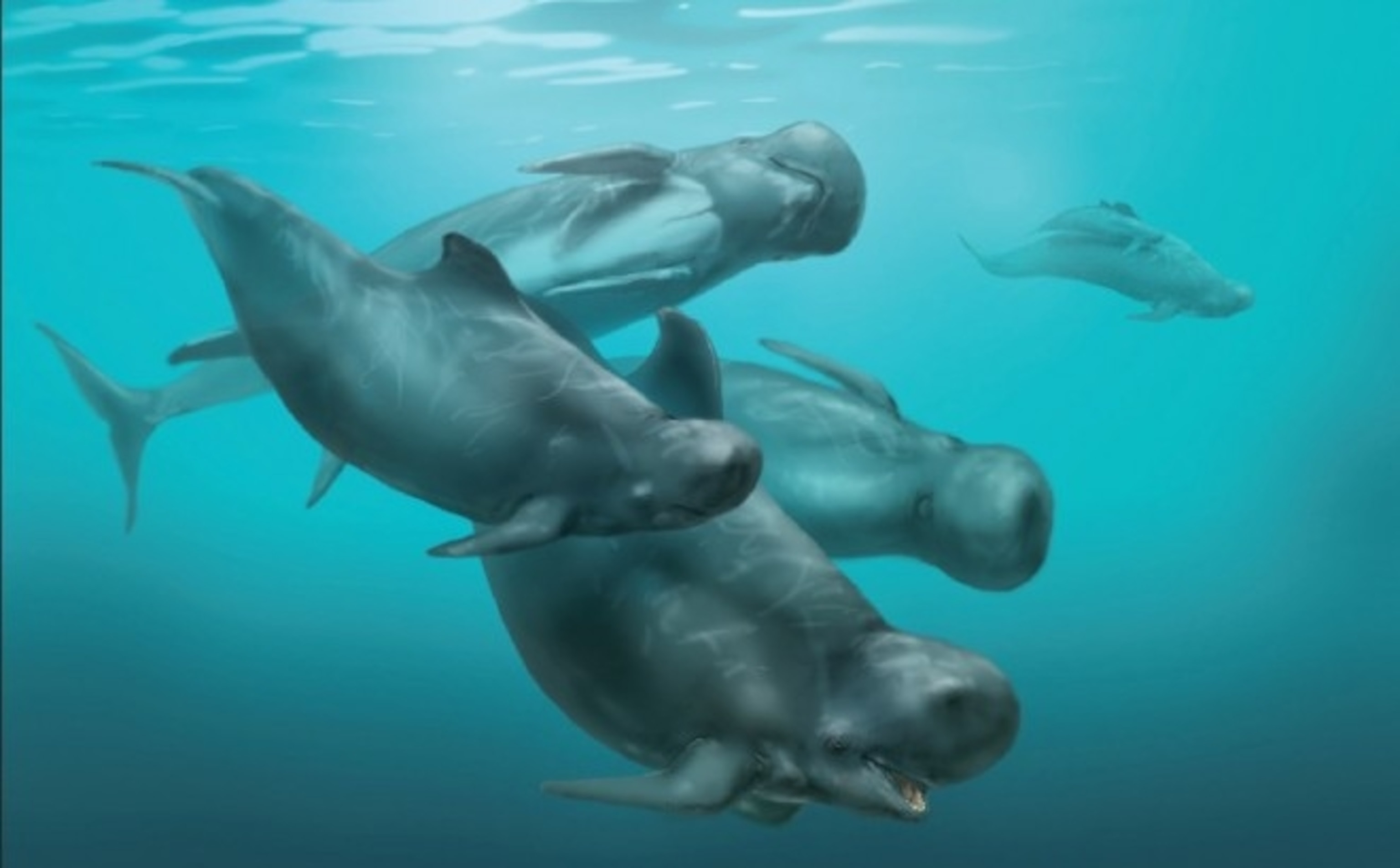Paleontology, at least in part, owes its beginnings to fossils turning up where they were not expected. The distribution of shark teeth and fossil shells over the European countryside – vestiges of prehistoric seabeds which had been thrust up to become land over millions of years – were essential clues which naturalists such as the Danish anatomist Nicolas Steno used to create a perspective of a changing world. Before a comprehension of Deep Time was developed, finding fossilized shark teeth or shells along the beach or in ocean dredges probably would not have generated much interest or comment. It was the fact that these remainders of ancient life were found in an unexpected, terrestrial context which forced scholars to come up with an answer for why there should be seashells on mountaintops.
Over three centuries after Steno, we have a much more refined – though still-changing – understanding of earth history. There is enough context to even recognize extinct species which, just a few hundred years ago, would probably have been cast as aberrant remains of still-living species. One such fine example is Platalearostrum hoekmani, a ludicrously short-snouted fossil dolphin just described by Klaas Post and Erwin Kompanje in the Natuurhistorisch Museum Rotterdam journal Deinsea.
The partial remains of Platalearostrum – dubbed the ‘balloon-headed dolphin‘ by the BBC, though its name translates to something more akin to “spoon-nosed” – were not chiseled out of a quarry or found poking out of sedimentary strata. Instead they were trawled up from the bottom of the North Sea by the fishing vessel GO 28 in November of 2008. They were part of a collection of animals which lived sometime around the boundary of the Pliocene and Pleistocene epochs 2-3 million years ago. This time estimate comes from the identification of another beast from the same deposits. Among other marine mammals, the fossil walrus Ontocetus emmonsoni is frequently dredged up from these offshore bonebeds, and since it is known to have lived from the latest Pliocene to the earliest Pleistocene it is probable that the newly-discovered whale also lived in this 2-3 million year old window.

Many types of whales – from baleen whales to orcas – have been reported from North Sea trawl deposits before, but what makes Platalearostrum unique is its skull shape. Admittedly the partial left upper jaw (maxilla, premaxilla, and vomer) of the whale is not much to look at, but there is enough of it to know that it had a short, bulbous head which would have given it the look of a miniature sperm whale which swam too fast into a wall and compressed its head. Especially remarkable is the animal’s premaxilla – the bone formed a kind of thick, bony wing which would have helped support a large mass of soft tissues in life. This was not a pathology – Post and Kompanje could not find any sign that this was a diseased or deformed individual – but a distinctive feature of this whale.
Compared to other living and fossil whales, Platalearostrum showed the closest resemblance to the short-finned pilot whale (Globicephala macrorhynchus). The front of the spoon-snouted cetacean was much wider than that of the pilot whale, but they nevertheless shared a similar foreshortened skull which housed a small number of teeth. In systematic terms, it mostly likely belonged to the group containing pilot whales and orcas (Orcininae), and that group is in turn nested within the larger grouping of dolphins (Delphinidae). This placement needs to be supported by an in-depth evolutionary analysis – which was not undertaken in the descriptive paper – but the preliminary assessment that this was a type of prehistoric pilot whale is consistent with the evidence presented so far.
Just why Platalearostrum had such an unusual skull, however, is unknown. Based upon the large patches of rugose bone which would have been the sites of strong muscle attachments, Post and Kompanje hypothesize that the whale had an enormous melon – an organ essential to echolocation – which spilled over the sides of the snout. More complete skull material and anatomical studies of extant whales will be needed to be sure, but even a complete skull may not be able to tell us why this whale was adapted to possess such an exceptional soft-tissue structure. The biology of living whales can be extremely difficult to study, and, with so many mysteries surrounding modern cetaceans, reconstructing the lives of extinct whales is doubly challenging.
Top image: A pod of Platalearostrum, as restored by Remie Bakker | Manimal Works. From Post and Kompanje, 2010.
References:
Klaas Post, Erwin J.O. Kompanje (2010). A new dolphin (Cetacea, Delphinidae) from the Plio-Pleistocene of the North Sea. Deinsea, 14, 1-14

